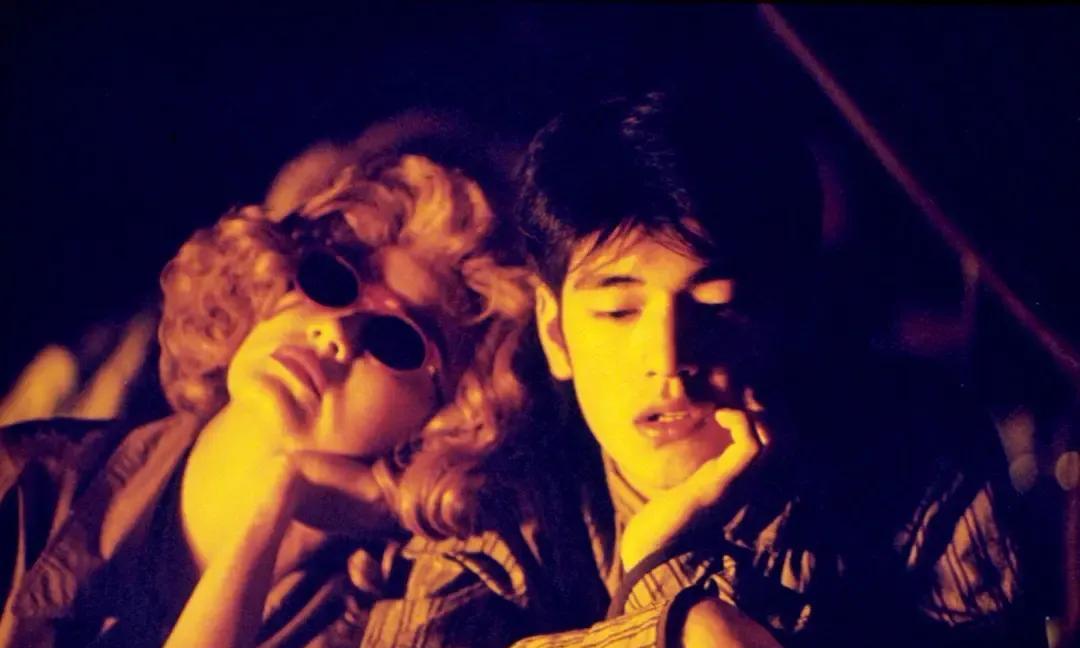Wong Kar-wai begins with a panning shot of Lin Qingxia walking through the alley, leading to Jin Chengwu's monologue: "Every day you have the opportunity to pass by everyone, you may not know anything about them, but they may become your confidants or friends in the future." This is actually the theme that Wong Kar Wai's films have been exploring, and the passing and reunion in the vast sea of people is the chaotic situation of urban life.
Some people say that people who have lost love are not suitable for watching "Chongqing Forest", but how can people who have not lost love understand the sadness and rebirth expressed in Wong Kar Wai's films. Jin Chengwu kept eating the canned pineapple that Amay liked, Liang Chaowei poured out to the furniture, wong Kar-wai's film empathy is very strong, he does not let the audience experience the loneliness and loneliness of the characters through the plot, but portrays these small details to describe the true state of a person's lost love. A large number of monologues and messy camera groups also set off the emptiness and confusion of the two after falling out of love.
"Chongqing Forest" continues Wong Kar-wai's casual narrative style, his film is more like a stream-of-consciousness novel, the camera follows the characters, so he needs to use a large number of monologues to narrate and introduce the characters, so that the subjectivity and sense of substitution of the film is stronger, but this narrative style does not make his film lack of storytelling, but enhances the audience's empathy, which is the charm of Wong Kar-wai's film art.
Wong Kar-wai uses two seemingly unrelated stories to illustrate the missed opportunities and connections he wants to express, but the same convenience store and the same lost love and re-encounter are expressing the same feelings. In the middle of the movie, the scene of the convenience store is used to connect two characters who seem to have no relationship. The same lost love, different performance, can only be said to be a common disease of urban people, Wong Kar-wai is just borrowing two small people to reflect a large group: people in the city are lonely and empty, full of desire to be loved, have dreams but are powerless to change reality.
Overall, "Chongqing Forest" is a film with Wong Kar-wai's personal style is very strong. The innovation on the camera, the large number of monologues, and the "California Dream" that runs through the second story, he is still very good at using foreign objects to express the emotions of the characters, which properly resonates with the audience from the senses.
What Wong Kar-wai wants to tell us is that missing and meeting is a high probability event in people's lives, some encounters are for missing, and some miss are for the next better encounter. In the vast sea of people, every individual is equally lonely, and only the encounter of two fiery souls will make life hot.
